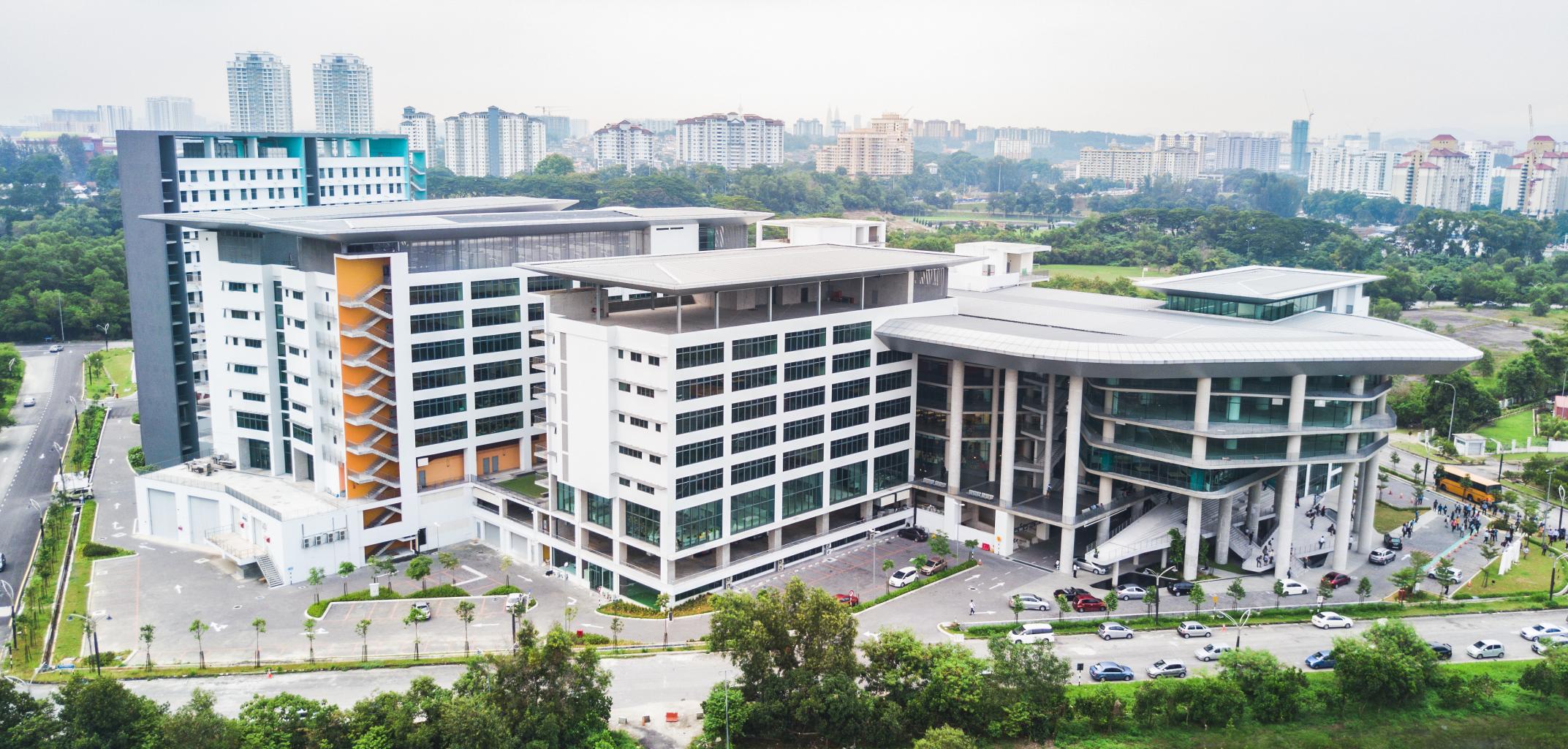 Asia Pacific University of Technology & Innovation (APU)
Asia Pacific University of Technology & Innovation (APU)
12,000
Number of Students
6,000
International Students
25
Number of Programs
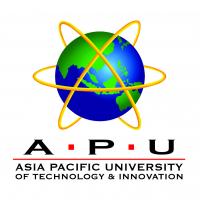
University Description:
Study in one of the greatest cities of the world - Kuala Lumpur. The mega city with about 1.8 Mio. people is famous for the breathtaking Petronas Twin Towers, the vibrant nightlife and the unique symbiosis of the traditional, Malaysian architecture and culture and the imposing skyline of Downtown Kuala Lumpur.
Asia Pacific University (APU) is one of the most reputable premier private university technology institutions in Malaysia and has been awarded several times with the highest rankings rating by the Ministry of Education in Malaysia. All programs are conducted based on real world learning approaches and curriculum design that focus on enhancing your employability upon graduation. The Computing & Technology programs at APU is a part of the university's oldest and most established school, specializing in Computer Science, Cyber Security, Data Analytics, AI, Computer Games Development, AR/VR and etc. Not only the Tech programs are popular at APU, but the university also offers a large variety of diverse and interesting study area for international students that completely taught in English. (see below)
With almost 50% of international students from over 130 countries, APU ensures that you will gain memorable experiences alongside the diversified and colorful cultural environment. APU provides study abroad students the opportunity to choose courses from all of their study areas. In addition, APU offers 4 starting dates a year which allows students the flexibility to explore Asia apart from your studies. Any program students choose to take, they earn global perspectives from their fellow students and broaden their professional expertise.
Term system & start dates:
Bachelor: Quarterly
1. Term: September 5, 2024
Application Deadline: July 5, 2024
2. Term: October 31, 2024
Application Deadline: August 31, 2024
More dates
3. Term: February, 2025 to June, 2025
4. Term: June, 2025 to October, 2025
1. Term: September, 2025 to December, 2025
2. Term: November, 2025 to February, 2025
Master: Trimester
1. Term: September 17, 2024
Application Deadline: July 17, 2024
More dates
2. Term: February, 2025 to May, 2025
3. Term: June, 2025 to August, 2025
1. Term: September, 2025 to December, 2025
Download documents:
Bachelor: Quarterly
1. Term: September 5, 2024
Application Deadline: July 5, 2024
2. Term: October 31, 2024
Application Deadline: August 31, 2024
More dates
3. Term: February, 2025 to June, 2025
4. Term: June, 2025 to October, 2025
1. Term: September, 2025 to December, 2025
2. Term: November, 2025 to February, 2025
Master: Trimester
1. Term: September 17, 2024
Application Deadline: July 17, 2024
More dates
2. Term: February, 2025 to May, 2025
3. Term: June, 2025 to August, 2025
1. Term: September, 2025 to December, 2025
| Study Area | Study Course | Bachelor | Master | |||||||
|---|---|---|---|---|---|---|---|---|---|---|
| Term Q1 | Term Q2 | Term Q3 | Term Q4 | Full Degree | Term 1 | Term 2 | Term 3 | Full Degree | ||
| Social Sciences | International Relations | |||||||||
| Psychology | ||||||||||
| Natural Sciences | Cybersecurity | |||||||||
| Software engineering | ||||||||||
| Data Analytics | ||||||||||
| Computer Sciences | ||||||||||
| Computer Technology | ||||||||||
| IT | ||||||||||
| Engineering | Computational Engineering | |||||||||
| Mechatronics | ||||||||||
| Electrical Engineering | ||||||||||
| Artifical Intelligence | ||||||||||
| Business | Media and Communication | |||||||||
| Tourism | ||||||||||
| Finance | ||||||||||
| International Business | ||||||||||
| Project Management | ||||||||||
| Business Administration | ||||||||||
| Human Resource Management | ||||||||||
| Marketing | ||||||||||
| Advertising and Public Relations | ||||||||||
| Accounting | ||||||||||
| MBA | ||||||||||
| Arts | Industrial Design | |||||||||
| Languages, Cultures, Leisure | Media Studies | |||||||||
University Facts
University Description
Study in one of the greatest cities of the world - Kuala Lumpur. The mega city with about 1.8 Mio. people is famous for the breathtaking Petronas Twin Towers, the vibrant nightlife and the unique symbiosis of the traditional, Malaysian architecture and culture and the imposing skyline of Downtown Kuala Lumpur.Asia Pacific University (APU) is one of the most reputable premier private university technology institutions in Malaysia and has been awarded several times with the highest rankings rating by the Ministry of Education in Malaysia. All programs are conducted based on real world learning approaches and curriculum design that focus on enhancing your employability upon graduation. The Computing & Technology programs at APU is a part of the university's oldest and most established school, specializing in Computer Science, Cyber Security, Data Analytics, AI, Computer Games Development, AR/VR and etc. Not only the Tech programs are popular at APU, but the university also offers a large variety of diverse and interesting study area for international students that completely taught in English. (see below)
With almost 50% of international students from over 130 countries, APU ensures that you will gain memorable experiences alongside the diversified and colorful cultural environment. APU provides study abroad students the opportunity to choose courses from all of their study areas. In addition, APU offers 4 starting dates a year which allows students the flexibility to explore Asia apart from your studies. Any program students choose to take, they earn global perspectives from their fellow students and broaden their professional expertise.
Bachelor: Quarterly
1. Term: September 5, 2024
Application Deadline: July 5, 2024
2. Term: October 31, 2024
Application Deadline: August 31, 2024
More dates
3. Term: February, 2025 to June, 2025
4. Term: June, 2025 to October, 2025
1. Term: September, 2025 to December, 2025
2. Term: November, 2025 to February, 2025
Master: Trimester
1. Term: September 17, 2024
Application Deadline: July 17, 2024
More dates
2. Term: February, 2025 to May, 2025
3. Term: June, 2025 to August, 2025
1. Term: September, 2025 to December, 2025
Visa Information:
Mobility visa (6 months to 1 year depending on the duration of the study abroad programme).APU will apply for the student visa on behalf of the students. Visa will be applied once we received all the required documents and visa application fee from student. Students should submit all the required documents to us at least 2 months prior to commencement date / intake date.
Why should you come and study with us?
APU is one of the best leading technology institutions in Malaysia that continues to maintain its status as a Premier DigitalTech University awarded by the Malaysia Digital Economy Corporation (MDEC) for its commitment in offering top-notch
digital technology courses and ensuring the employability of graduates in meeting future digital job demands.
APU has earned an enviable reputation as an award-winning University through its achievements in winning a host of
prestigious awards at national and international levels.
Rated No.1 in Asia & Malaysia for multicultural learning experience by the i-Graduate Student Barometer Survey 2017, APU
houses more than 12,000 students from over 130 countries who are studying in the areas of Computing & IT, Engineering,
Design & Media, Accounting & Finance, Actuarial Studies, Business Management and International Relations.
Study opportunities:
Computer Science & IT, Computer Games Development, Cyber Security, Big Data, Artificial Intelligence, Electrical & Electronic Engineering, Mechatronic Engineering, Petroleum Engineering, Accounting, Banking & Finance, Financial Technology, Actuarial Studies, Business, Marketing & Tourism, Digital Leadership, E-Business, Digital Marketing, Media & Communication, Industrial Design, Animation & Visual Effects, International Relations & PsychologyScholarship possibilities for international students:
Scholarships is not available for study abroad programme. The 1 Semester Study Abroad programme is already a discounted package, compare to the regular tuition fee.Application Deadline:
2 months before the commencement date / intake dateApplication requirements:
• Application form• Passport copy (all pages) Minimum 18 months validity
• Coloured Passport-sized photo – 45mm high x 35mm wide -White background
• Health Declaration Form (Please be aware that you are not allowed to have drugs in your blood upon arrival in Malaysia)
• Reference letter from current university (stating that you are a full time & current student from your university)
• Stage 1 fee (initial payment)
Orientation:
YesExamperiod:
At the end of the semesterWorking while studying:
Students may apply for Student Helper and interview is required.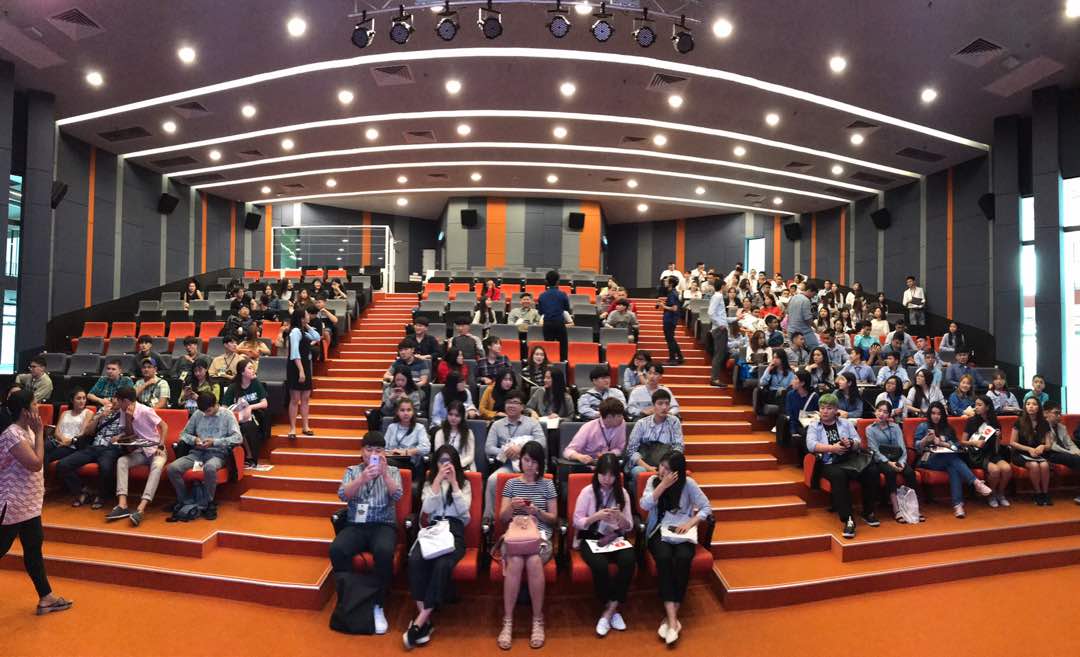
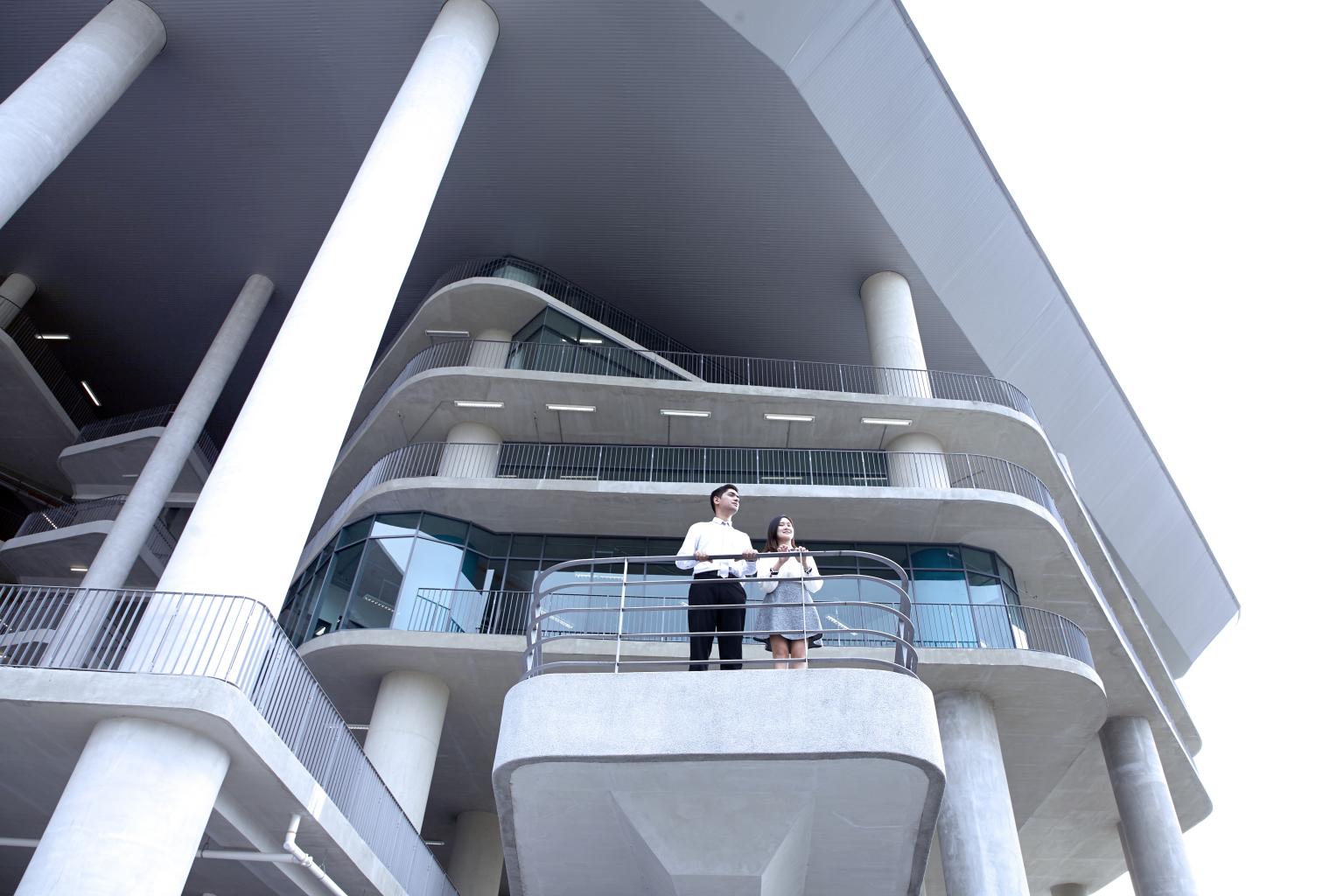
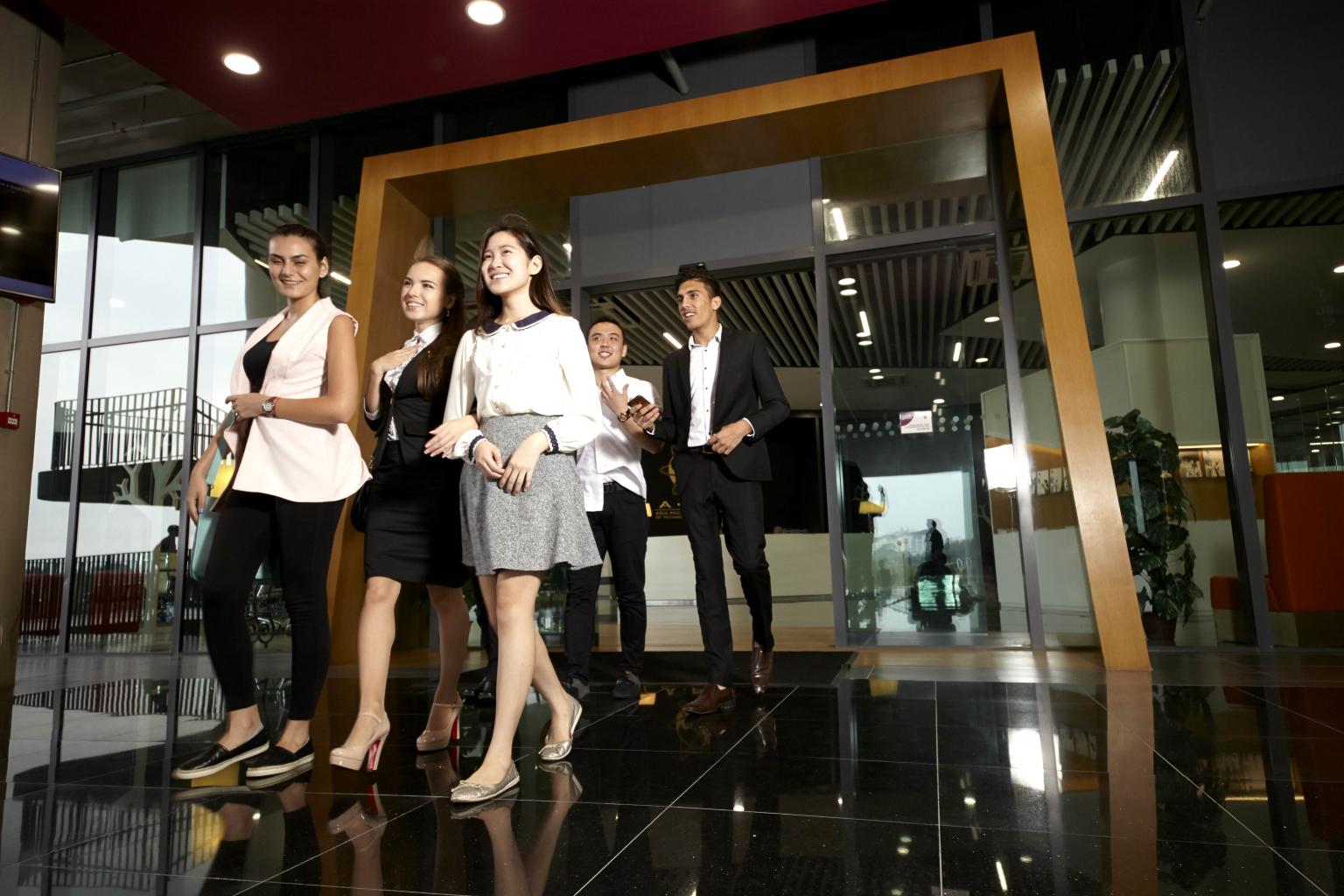
Fees
Bachelor Semester Abroad:
3,140 USD
Master Semester Abroad:
3,140 USD
Application Fee:
440 USD
Additional Costs:
430 USD APU Registration and Admin Fees (includes Student Visa, Medical Screening & Medical Insurance)
290 USD Deposit
Reductions and Scholarships:
The listed prices already include a discount of around 13% of the original tuition fees valid for all students from partner universities.
In case you are not from a partner university of APU, please make sure to apply for our scholarships to receive the reduced tution fees. To apply for the scholarship, please contact info@worldofstudents.org
Valid: 2023-05-03 to 2023-06-30
City & Living
City features:
Key shopping and sightseeing locationssuch as Sunway Pyramid, KLCC, Petronas Twin Towers are located around 30 minutes’ drive from the campus, while Kuala Lumpur, being the capital city of Malaysia is located within the Central region of Peninsular Malaysia, and is accessible to other states within the Peninsular via major highways as well as to the East Malaysia and other Southeast Asia regions via domestic and international flights. This gives you an opportunity to explore beyond KL and Malaysia as well - exciting adventures in Langkawi Island, Penang, Malacca City, Cameron Highlands, Phuket Island, Bangkok, Singapore, Bali Island, Mulu Caves, Mount Kinabalu and many more destinations await you!
Address in Kuala Lumpur, Malaysia:
Asia Pacific University of Technology & Innovation (APU)Technology Park Malaysia, Bukit Jalil
Kuala Lumpur, Malaysia
Population:
1,808,000Closest Airport:
Kuala Lumpur (KUL)Sightseeing:
Petronas Twin Towers, Kuala Lumpur Tower, Sunway Pyramid, Batu Caves, Petaling Street, Bukit Bintang and many moreShopping:
KLCC, Mid Valley Megamall, Sunway Pyramid, 1 Utama Mall, etcHow to get to university:
APU’s campus is strategically located within Technology Park Malaysia (TPM), Bukit Jalil, Kuala Lumpur.Shuttle buses are available to/from APU campus from/to the Bukit Jalil Light Rail Transit (LRT) station, providing you with utmost
convenience and accessibility to places of interests within the city.
Housing On-Campus:
275 - 350 USD per month (utilities included) - On-campus accommodation blocks are located conveniently on the edge of the campus which is only a-minute’s walk to classrooms and the cafeteria.All APU-managed accommodations are well-equipped with high-speed wireless internet, while you will be taken care of by our dedicated wardens and accommodation services team.
For both on-campus and off-campus accommodation, dining options are available just a stone’s throw away – don’t miss the
chance to dine in the nearby local ‘mamak’ joints and feast on the delectable food varieties like a local!
Housing Off-Campus:
220 - 300 USD per month Off-campus accommodationis located at a number of apartment buildings close to the campus. All APU-managed accommodations are well-equipped
with high-speed wireless internet, while you will be taken care of by our dedicated wardens and accommodation services team.
For both on-campus and off-campus accommodation, dining options are available just a stone’s throw away – don’t miss the
chance to dine in the nearby local ‘mamak’ joints and feast on the delectable food varieties like a local!
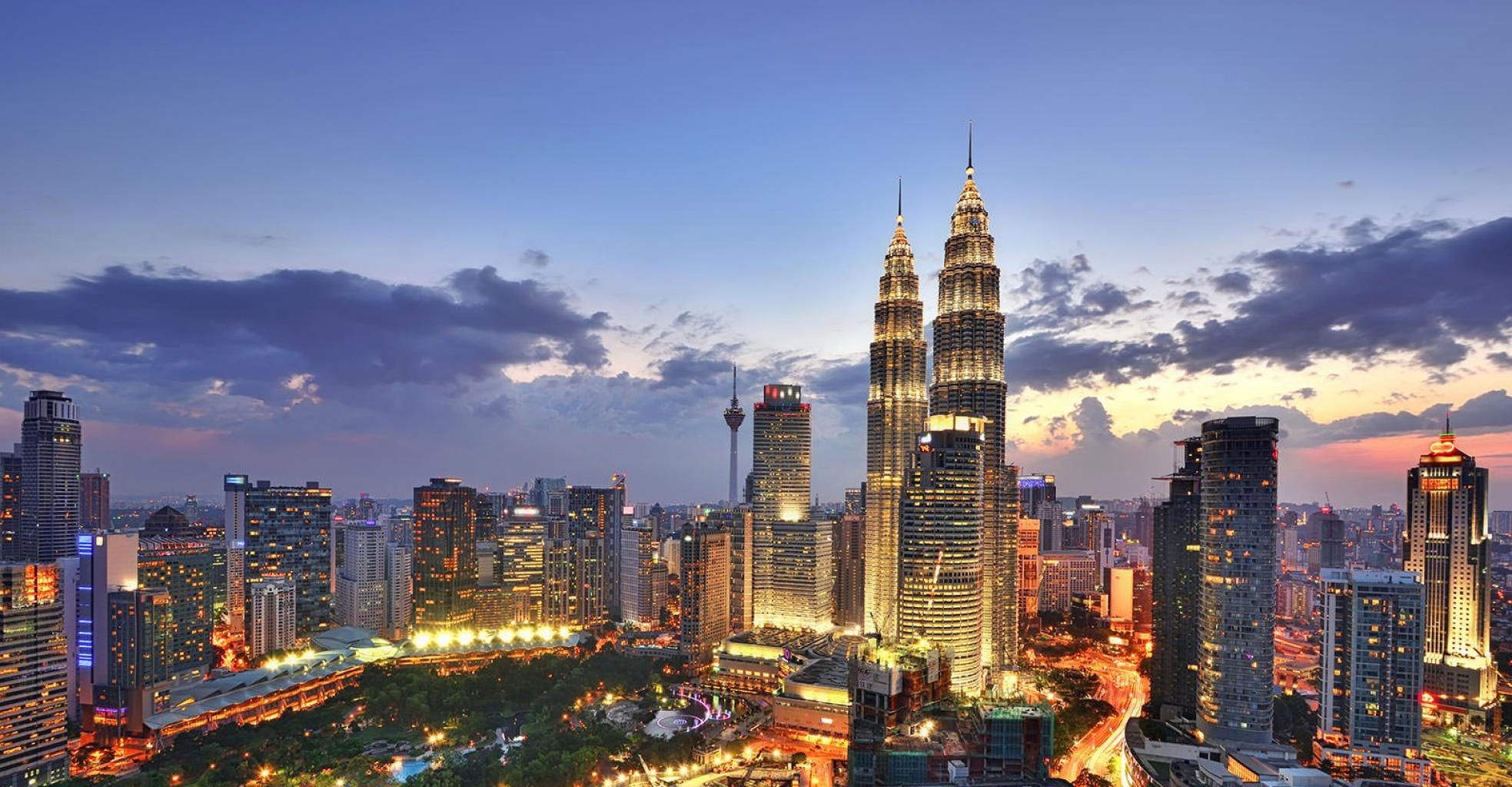
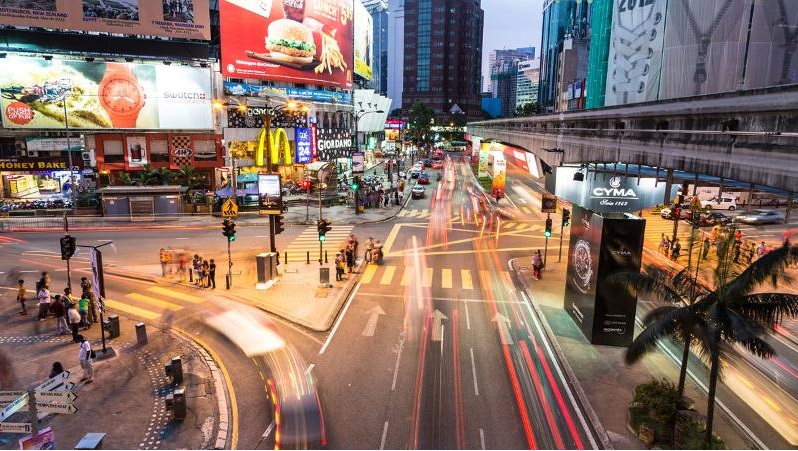
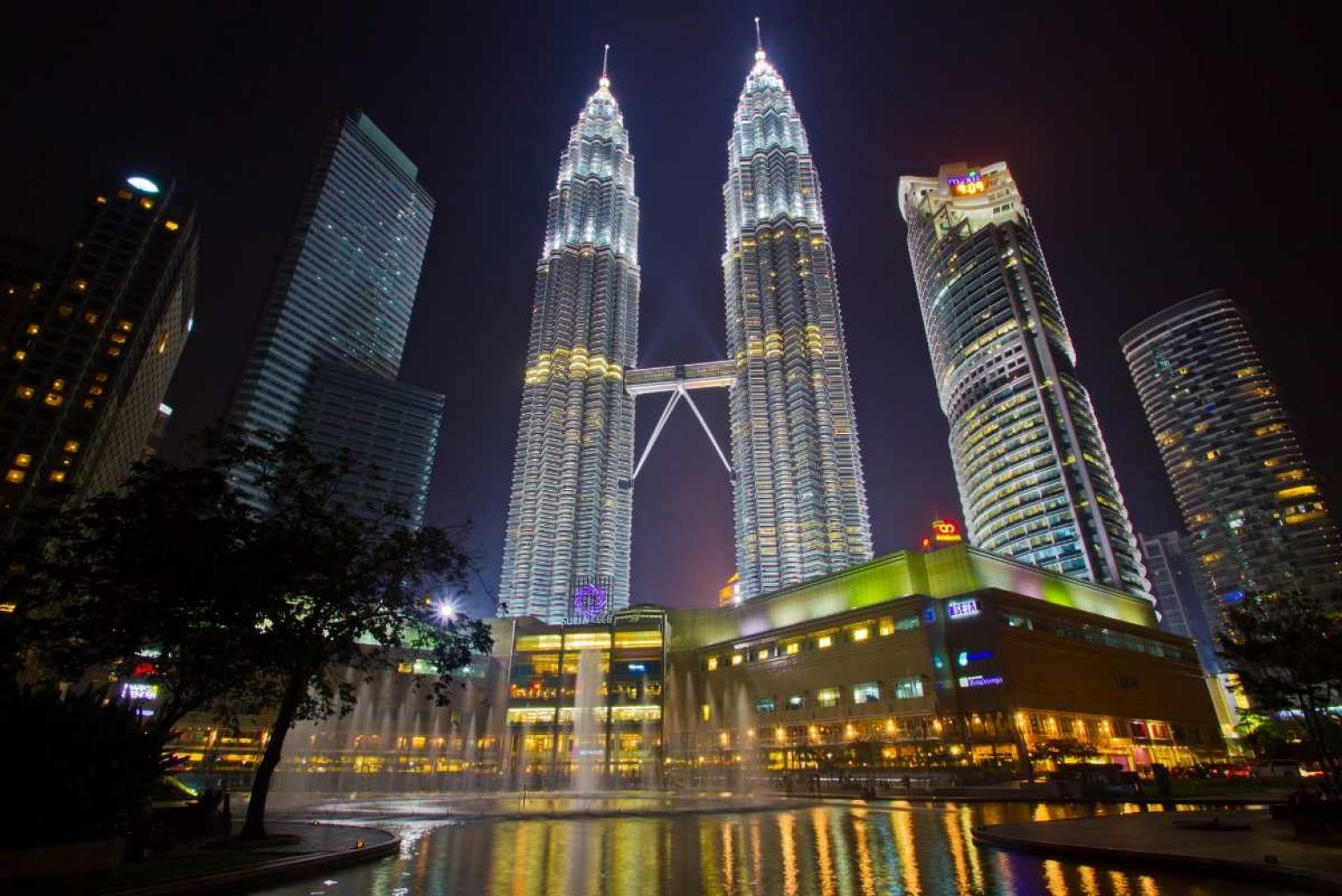
Celebrating APU Syawal Festival 2022
More than 100 students from different majors and countries participated in Syawal Festival 2022 at the Atrium on the Asia Pacific University of Technology and Innovation (APU) campus. The international students at APU shared their culture and enjoyed delicious "Ketupat Rendang" dishes and other activities at the festival. Miriam Alexandra Geukes, an exchange student from Potsdam participating in the study abroad program in February 2022, was able to celebrate and experience the local festival on campus and learn about different cultures with her friends!
BEST Cybersecurity Education Provider in ASIA
We are thrilled to share this good news with you – APU has just been announced as the BEST Cybersecurity Education Provider in ASIA! This spectacular achievement was announced by the Cybersecurity Excellence Awards 2020 committee on their website. All nominations submitted were subjected to a judging process based on the demonstration of leadership, excellence and results in cybersecurity and a voting process by the Information Security Community, which consists of 400,000+ members on LinkedIn. What made this achievement greater was the fact that we are now receiving this award for the 2nd time in a row! As a continuation of our excellence since last year, we stood out among all nominations for our excellence in providing high-quality cybersecurity education, particularly through world-class facilities housed at the CyberSecurity Talent Zone and the outstanding competence demonstrated by our academic team. The honour has also been recognized by Cybersecurity Insiders on their website. Huge CONGRATULATIONS to all of us for this astonishing achievement!
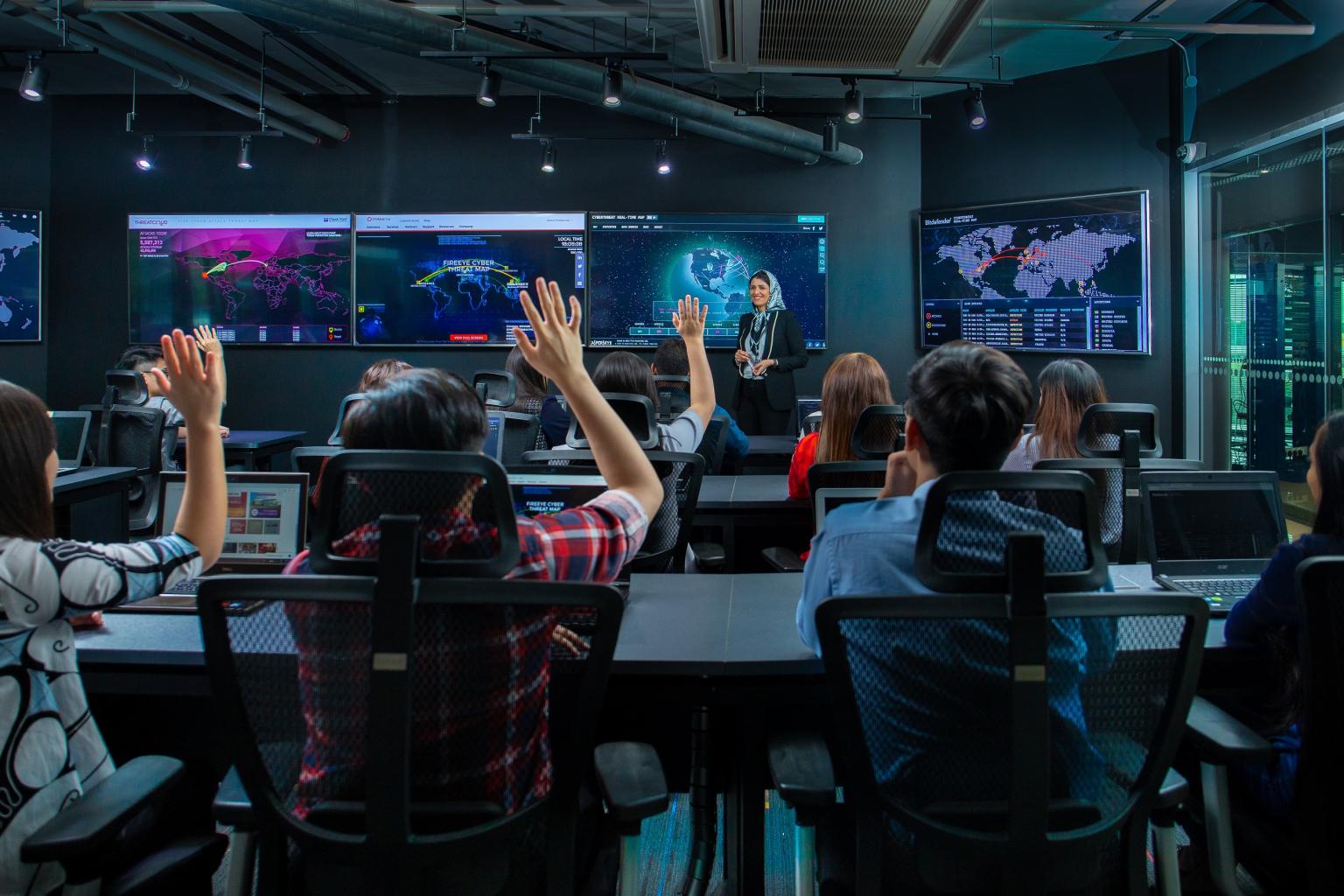
AACSB - The Association to Advance Collegiate Schools of Business
Asia Pacific University (APU) is among few institutions in Malaysia who are Members of AACSB. AACSB International is a global association of leaders in education and business dedicated to supporting and advancing quality business education worldwide.
Through membership, accreditation, research, thought leadership, professional development, and advocacy, AACSB partners with over 1,500 organizations, from more than 90 countries globally. https://www.aacsb.edu/about
On Campus Accommodation at APU
On-Campus Accommodation is located within APU’s Campus in Technology Park Malaysia. The Accommodation is equipped with 24/7 security and access card control. Students staying in the Accommodation will have access to the campus facilities directly, such as the SweatZone, Residence Lounge and more. There are three types of accommodation, with different room options within:
En-Suite Rooms With Common Pantry
√ Wi-Fi (Internet) √ Water Heater √ Cooking
A common pantry is available at each floor and is equipped with stove, microwave oven and refridgerator. All rooms have attached bathrooms and are equipped with water heaters, bathroom mirrors with shelves and towel racks. Two Rooms Unit With Kitchen √ Wi-Fi (Internet) √ Water Heater √ Cooking A Common Kitchen is available in the two rooms unit and is equipped with stove, microwave oven and refrigerator. All Rooms have attached bathrooms and are equipped with water heaters, bathroom mirrors with shelves and towel racks.
Sharing Apartment With Kitchen - 5 Rooms In An Apartment
√ Wi-Fi (Internet) √ Water Heater √ Cooking
A Common Kitchen is available at each apartment and is equipped with stove, microwave oven and refrigerator. All Rooms have attached bathrooms and are equipped with water heaters, bathroom mirrors with shelves and towel racks. The rooms are lent to students on single & twin sharing basis. The following is provided in each room: water heater, study table, bed with divans, and Wi-Fi. Super Premium Rooms are equipped with Mini Fridge. Students will pay for electricity fees and laundry facilities on ‘Pay as you use’ basis. The accommodations are located within APU's New Campus.
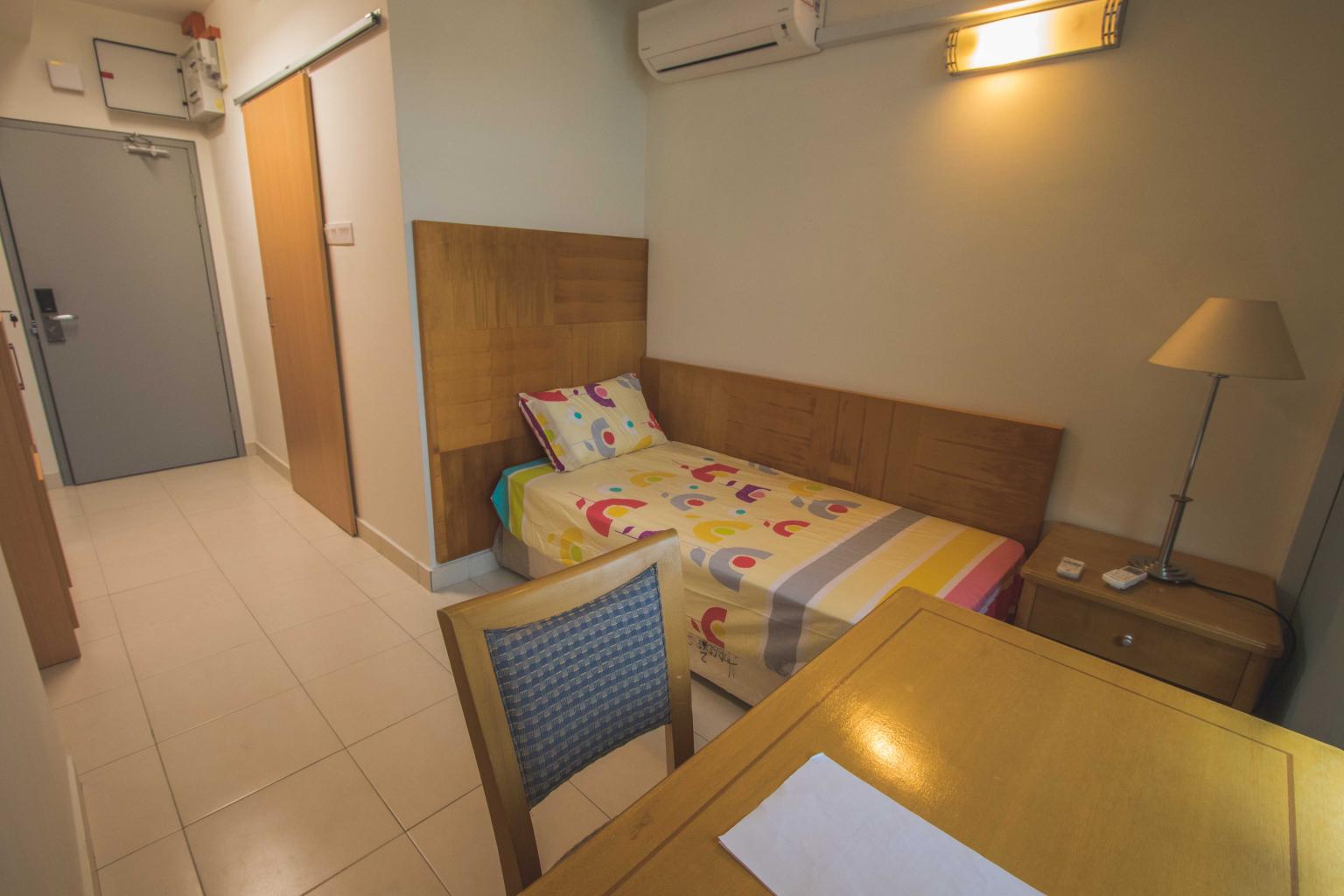
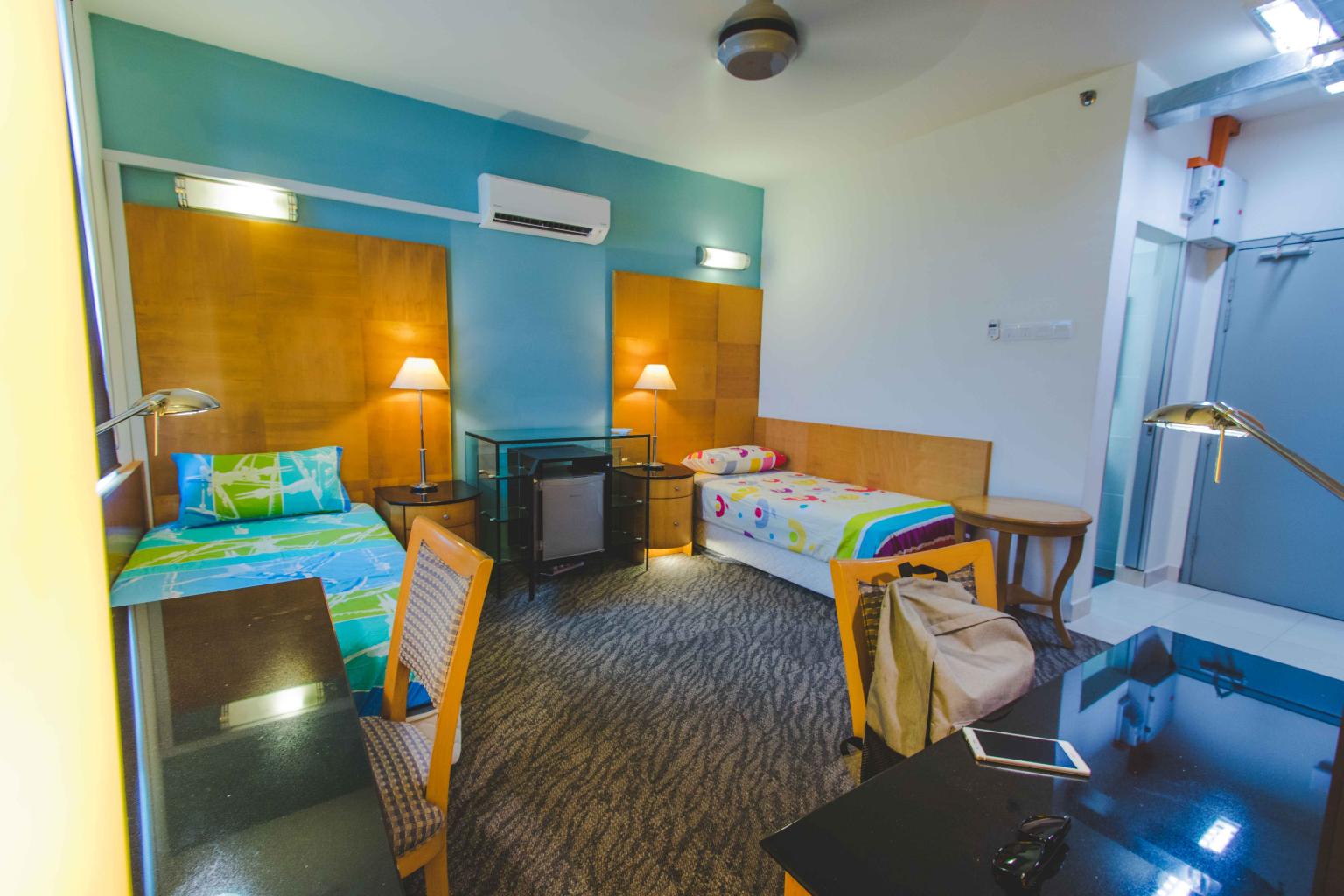
Most Popular News:
The best time of your life - Gap Year at UNCW!
You have finished high school and don't know exactly what you want to study? The UNCW offers you a wide range of courses from over 120 fields of study - ideal for orientation after school without having to decide directly on a specific course of study. After successfully completing your gap year, you will receive your official transcript and can ideally transfer the credits you earned during your gap year to your future university in Europe - or you can decide to continue your studies in the U.S. and directly enter the second bachelor year at UNCW. So what are you waiting for? Get a taste of university life in the USA and take one step closer to your dream course of study!
Start your semester abroad in Seattle
Are you looking for the perfect spot for your study abroad semester? City University of Seattle is offering you great programs on a quarterly basis! For those of you seeking to combine studying with international experiences and company visits (e.g. Amazon, Starbucks, Microsoft, Expedia.com) we suggest to apply for our summer programs. You can join one of our two sessions and add a quarter in order to receive more than 30 ECTS in just 4,5 months! Reach out to World of Students for further information or join one of our virtual presentations.
Arriving in Canada
Before classes start, make sure to explore the vibrant city of Vancouver! Apart from the well-known tourist spots, try some of the delicious food, enjoy a bike tour through Stanley Park or watch a Majour League Soccer game of the Vancouver Whitecaps before taking the ferry or plane over to Vancouver Island to start your classes at VIU.
Fairfax Lookout in Manly
Our students love the Fairfax Lookout on the North Head!
Only a couple of minutes from the ICMS campus in Manly you can watch stunning sunsets over Sydney. At the Fairfex lookout students spend a great time together with their international friends, eating pizza and listening to music while watching the Sydney harbour. You may even see one of the whales passing by the coast.
I liked the most, that there where a lot of international students from Germany, and indeed also other western countries. We directly connected all on the first day and this made travelling and enjoying the country much better.
Rojan R. (BSP - Business and Law School - Campus Hamburg)
Choosing Malaysia as my study abroad country was the best decision I could have made. The diversity of the culture, the different tastes, the nearby travel opportunities; It all made this journey very special. I have never been to east Asia before, but now, I can say I visited almost every country in that region. Travel and food expenses are very low as well.
Rojan R. (BSP - Business and Law School - Campus Hamburg)
No reviews posted yet.
Erfahrungsbericht Griffith College Dublin - by Jessi L.
Ein Semester im Ausland bietet sowohl persönlich, als auch beruflich viele neue Perspektiven und Erfahrungen. Zum einen wollte ich meine Fähigkeiten im Gebrauch der englischen Sprache verbessern und meinen Wortschatz erweitern. Aber es war mir auch wichtig mich einer solchen Herausforderung zu stellen, um selbstständiger und spontaner zu werden. Ein „normales Studentenleben“ einmal zu erleben ist gerade für einen DH Studenten sicher erstrebenswert. Da an der DH die Zeiten und Kurse sehr streng gelegt sind, bietet ein Studium im Ausland die Möglichkeit auch einmal die etwas flexiblere und eigenständigere Art des Studierens an einer „normalen“ Universität zu erfahren. Ich habe mich für das Griffith College in Dublin entschieden und diese Entscheidung auch nicht bereut. Vorbereitung des Aufenthalts Die vorläufige Anmeldung des Auslandsemesters erfolgt im Mai des Jahres vor dem geplanten Semester im Ausland. Bis zur endgültigen Anmeldung bleibt jedoch Zeit bis Herbst. Am besten informiert man sich im Voraus auf der Website des Auslandamts der DHBW und schaut sich die Website des Griffith Colleges einmal an. Zudem hatte ich einen Termin mit einer Mitarbeiterin des Auslandsamts, welche mir sehr dabei geholfen hat die richtige Uni im Ausland zu finden. Außerdem hat sie mir viele wichtige Informationen bezüglich des Anmeldeverfahrens und benötigter Dokumente gegeben. Bei Fragen während des Bewerbungsprozesses konnte ich mich auch immer an Florian Burkhardt wenden. Er ist der „German Office Manager“ des Griffith College in Deutschland und kümmert sich gerne und schnell um die Anliegen der zukünftigen Studenten. 2 Eines der benötigten Dokumente zur Vorbereitung ist das Learning Agreement. Dieses wird zwischen dir und der DH abgeschlossen. Hierbei geht es darum im Voraus zu schauen welche der Kurse, die man in Deutschland verpasst, man mit welchen Kursen am Griffith College abdecken kann. Das Learning Agreement hilft also vor Ort bei der Kurswahl und ist eine Sicherheit, dass die Kurse im Ausland auch an der DH angerechnet werden. Im Bereich BWL- DLM ist Herr Prof. Dr. Augenstein für das Agreement verantwortlich und hilft gerne bei Fragen. Eine Liste mit den in Dublin angebotenen Kursen kommt allerdings erst nach der endgültigen Anmeldung am Griffith College. Allerdings ist es gerade für den Studiengang BWL- DLM immer recht einfach alle Kurse abzudecken und oftmals bleibt sogar noch eine Wahlmöglichkeit. Ebenfalls zur Vorbereitung des Semesters in Irland gehört auch die Wohnungssuche. Hier gibt es generell zwei Möglichkeiten: ein Zimmer im Studentenwohnheim auf dem Campus oder eine private Bleibe. Insgesamt muss man mit recht hohen Mieten im Vergleich zu Deutschland rechnen. Ich habe mich für eine private Bleibe in Dublin entschieden. Hierbei war mir besonders die Website www.daft.ie behilflich. Hierzu gibt es aber auch viele Tipps auf der Website des Colleges. Wenn man diesen Weg wählt ist es wichtig noch keine Verträge von Deutschland aus zu unterschreiben oder gar Zahlungen im Voraus zu leisten. Da Dublin sehr international ist, suchen viele Leute aus dem Ausland Wohnungen, was leider auch Missbrauch und Betrug mit sich bringt. In Irland ist es allerdings so, dass man, schnell Wohnungen und Zimmer anschauen kann und, wenn man eine Zusage hat, innerhalb von 24h auch dort einziehen kann. Viele Iren und Irinnen die alleine in Häusern oder großen Wohnungen leben vermieten dort ein Zimmer unter und man lebt sozusagen in einer WG. So habe ich auch bei einer netten älteren irischen Dame gewohnt, mit der ich mich sehr gut verstanden habe und die mir auch einmal ausgeholfen hat, wenn ich Tipps oder gar ein Auto brauchte.
Mein Auslandsjahr am Griffith College in Dublin, Irland - by Jonas R.
Irland bietet viele tolle Landschaften und eine Menge an Aktivitäten in und um Dublin. Die Stadt kann man meiner Meinung nach am besten zu Fuß erkunden. Besonders sehenswert in Dublin und ganz Irland fand ich die Grafton Street Area, den Phoenix Park, die Cliffs of Moher, den Wild Atlantic Way, den Giants Causeway und den Ring of Kerry. Etwas kleinere Ausflüge von Dublin aus können z. B. nach Howth oder Dun Laoghaire unternommen werden. Außerdem gibt es einen sehr schönen Cliffwalk zwischen Brey und Greystones. Oder man macht einen Ausflug zum Strand der Dublin Bay bei Sandymount. Von dort aus kann man auch zum Poolbeg Leuchtturm spazieren. Griffith College Das College liegt im Süden von Dublin, ungefähr 20 bis 25 Minuten zu Fuß vom Stadtkern entfernt. Eine Bushaltestelle befindet sich in direkter Nähe zum College. Ich persönlich rate allen Studierenden, die Einführungsveranstaltungen zu Beginn des Semesters zu besuchen. Hier werden wichtige Informationen zum Studienalltag, zum College selbst und zum Leben in Dublin weitergegeben. Das International Office klärt die Incoming Students zudem über die Beantragung der sogenannten PPS Number auf. Diese muss beantragt werden, wenn man einen Abschluss von einem College in Irland erhalten möchte (IB). Man braucht diese allerdings auch, wenn man sich vor Ort einen Nebenjob suchen möchte. Über die beiden Semester belegt man insgesamt drei Hauptfächer, das semesterübergreifende Modul „Business Plan“, sowie zwei Wahlfächer pro Semester. In den ersten beiden Wochen je Semester hat man die Möglichkeit, alle Vorlesungen der Wahlfächer zu besuchen. Spätestens nach diesen beiden Wochen muss man sich dann für zwei Module entscheiden. Was hierbei sehr schade war: es werden leider nicht alle Kurse angeboten, die anfangs bei der Bewerbung im Modulhandbuch zur Auswahl standen. In meinem zweiten Semester z. B. waren viele Studierende mit dem Fächerangebot unzufrieden. Auf Anfrage und Bitte wurde aber ein Kurs dann doch noch angeboten und eine Dozentin dafür organisiert. Bei solchen Angelegenheiten ist das College sehr verständnisvoll und bemüht. Die Studienweise in Irland ist anders im Vergleich zu Deutschland. Angefangen bei wöchentlich längeren Vorlesungszeiten (vier Stunden für Hauptfächer, drei Stunden für Wahlfächer und eine Stunde Tutorium in jedem Fach) über einen höheren Aufwand unter dem Semester (Assignments in jedem Fach) bis hin zu dreistündigen Prüfungen (essay style) am Semesterende. Die Hausarbeiten stellten zu Beginn eine große Herausforderung dar, da wir solche nie zuvor an der Hochschule Landshut schreiben mussten. Hierbei ist ein gutes Zeitmanagement wichtig. Mit der Zeit lernt man aber, worauf es ankommt und wie man die Recherchen besser angeht. Die Prüfungen sind meiner Meinung nach gut machbar, wenn man die Vorlesungen und Tutorien regelmäßig besucht. Man weiß dann, worauf es den Dozenten ankommt. Skripte werden gebunden ausgeteilt und den Vorlesungsstoff findet man zudem auf der Online-Plattform Moodle. Die meisten Professoren haben den Stoff in der letzten Vorlesung noch eingegrenzt. In der Prüfung werden sechs offene Fragen gestellt, von denen man vier in drei Stunden beantworten muss. Die Antwort wird in Form von Aufsätzen verlangt. In den meisten Fächern setzt sich die Endnote aus 60% Prüfungsnote und 40% Assignmentnote zusammen. Alternativ gibt es noch die Gewichtungen 80%/20% und 50%/50%. In einigen Fächern wird zusätzlich eine Präsentation der Hausarbeit verlangt. Der Business Plan kann an der Hochschule Landshut als Bachelorarbeit angerechnet werden. Hierbei setzt man eine Geschäftsidee um und gründet ein fiktives Start-up Unternehmen. Diese Aufgabe erschien am Anfang aussichtslos und sehr aufwändig. Dass es viel Aufwand ist kann ich bestätigen, aber wenn man seine Zeit gut plant und kontinuierlich daran arbeitet kommt man gut damit klar. Als erstes reicht man einen Vorschlag zur Geschäftsidee ein. Daraufhin werden den Studierenden sogenannte Supervisor zugeteilt. Da diese aus unterschiedlichen Bereichen kommen, hatten sie auch jeweils andere Anforderungen und Erwartungen, was schließlich auch manchmal zu gefühlt unfairen Bewertungen führte. Mein Supervisor war sehr kompetent und hilfsbereit – andere Studierende hatten nicht so viel Glück und wurden weniger unterstützt. Ich persönlich fand es besonders hilfreich, dass man in mehreren Etappen einzelne Entwürfe einreicht, die dann korrigiert werden. So hat man mehrere Deadlines einzuhalten und der Aufwand wird über das Jahr hinweg verteilt. Durch das Feedback kann man die Entwürfe verbessern und weiter ausbauen und dann im Enddokument verwenden. Jedes Semester gibt es die sogenannte Readingweek welche zum Schreiben von Assignments genutzt werden kann. In dieser Woche finden keine Vorlesungen oder Tutorien statt. Falls man diese extra Zeit nicht benötigt um Hausarbeiten zu schreiben, kann man sie gut für Besuche oder Reisen nutzen.
Strapazen, Schloss und Strand: Erste Eindrücke Auslandssemester - by Jessi L.
Full content of: Improvement suggestions/Feedback, What did you enjoy most?, How were your classes?, Were you satisfied with the organization of your study abroad term? Full content of: Improvement suggestions/Feedback, What did you enjoy most?, How were your classes?, Were you satisfied with the organization of your study abroad term?
Strapazen, Schloss und Strand: Erste Eindrücke Auslandssemester - by Jessi L.
Full content of: Improvement suggestions/Feedback, What did you enjoy most?, How were your classes?, Were you satisfied with the organization of your study abroad term? Full content of: Improvement suggestions/Feedback, What did you enjoy most?, How were your classes?, Were you satisfied with the organization of your study abroad term?
Strapazen, Schloss und Strand: Erste Eindrücke Auslandssemester - by Jessi L.
Full content of: Improvement suggestions/Feedback, What did you enjoy most?, How were your classes?, Were you satisfied with the organization of your study abroad term? Full content of: Improvement suggestions/Feedback, What did you enjoy most?, How were your classes?, Were you satisfied with the organization of your study abroad term?
Schloss, Strapazen und Strand: Erste Eindrücke Auslandssemester - by Jessi L.
Full content of: Improvement suggestions/Feedback, What did you enjoy most?, How were your classes?, Were you satisfied with the organization of your study abroad term? Full content of: Improvement suggestions/Feedback, What did you enjoy most?, How were your classes?, Were you satisfied with the organization of your study abroad term?
Free & non-binding
Arrange consultation
We would also be happy to advise you personally at:
+ 49 (0) 6151 6274 8213
Are you dreaming of studying abroad? Our team will be happy to advise you on your study options free of charge and without obligation. Request information now or contact us.

